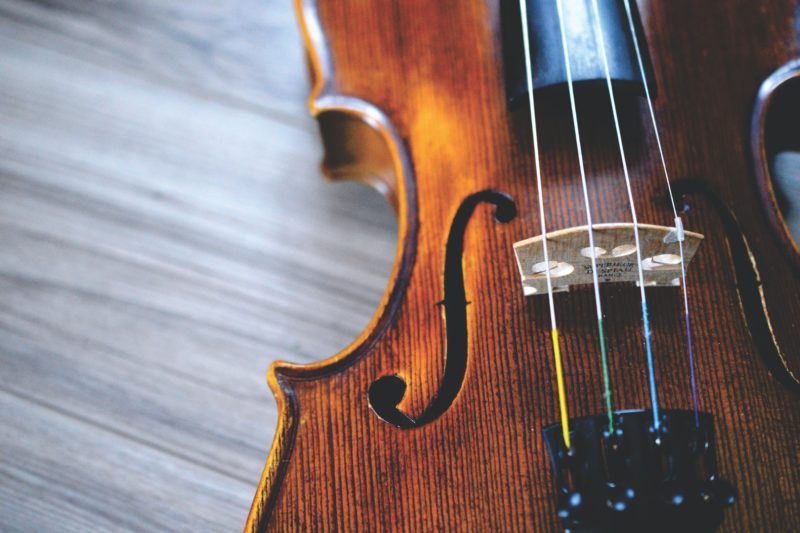UT’s Music Majors Struggle in Pandemic
By Rebekah Philip
Reporting Texas

As a senior music major at The University of Texas at Austin’s Butler School of Music and future student teacher, Alessio Nachtergaele hoped he would be teaching at Westlake High School and Cedar Creek Elementary. Although he continues to create lesson plans, quarantine continues to hinder him in many ways.
“The only music making we can do is solo music making,” Nachtergaele said. Both of these schools in Eanes ISD transferred classes to Zoom, where students could continue to participate in music classes. For the high school students in Westlake, they received flexible assignments to turn in for credit.
“At the high school level, what we did for the first several weeks is we left it up to the students,” Nachtergaele said. This meant that they had one assignment every week and the only guidelines were that it had to be related to music. For example, some students could make a collage or record a video of them singing.
Nachtergaele said that they could also analyze classical or contemporary pieces. Although they could not participate in choir activities, that did not stop students from trying.
“There were a few kids that collaborated with each other using GarageBand and they sounded like a choir,” Nachtergaele said.
However, the absence of social interaction continues to pose problems for those in the fine arts. For Bryson Tiller, a vocal performance major who attends Hardin-Simmons University, the quarantine caused a significant change in his degree plan.
Regarding his major, Tiller’s studies revolved around voice lessons and participation in many ensembles, which included Concert Choir and an a cappella group called UpBeat!. Once online learning began, Tiller acknowledged that there were difficulties.
For voice lessons, he had to record two songs and send them to his professor for evaluation. “This was not helpful to me,” said Tiller in an email, “because in general, I learn better in person and by demonstration.”
Tiller said the curriculum had to change in order to accommodate online classes, like writing choral analyses each week to discuss over Zoom. Although, sometimes there would be technological issues that made it harder for rehearsals.
“We ended up conducting to recordings the whole time, so we did not really get the feel of rehearsing with an ensemble, like we would have in person,” Tiller said.
In other cases, the workload would often compensate for the absence of in-person classes. For his music history class, Tiller wrote five to seven pages of material each week on top of the requirement to write a ten-page research paper. However, he said that he felt like he was not retaining much of the information from the homework.
Kara Litton, another student from Hardin-Simmons University, was supposed to start teaching. Yet, she did not get the opportunity due to the short semester on campus. As a vocal music education major, she instead had to make fake lesson plans. In addition to this, she could not participate in an opera that she looked forward to this year.
Litton is a junior, but she mentioned how the pandemic affected her graduating peers. “Some of my friends who were graduating didn’t get to show what they had been learning for the past four years,” Litton said.
She is one of many undergraduates in Hardin-Simmons University who may be experiencing these changes. According to data from the Texas Music Office, there are 104 students in the music department. UT, however, has 389 students in the Butler School of Music as a larger university.
The Butler School of Music consists of various fields of study, like collaborative piano, conducting and jazz studies, which are often interactive. With social distancing, the essential experiences attached to these majors are now obsolete.
Tiller said that having the opportunity to work with other students led to accountability and it produced a comforting environment.
“From my experience,” Tiller said, “I’ve seen that musicians who are introverted tend to crave the company of other musicians.”
Unlike asynchronous learning, classroom settings and in-person rehearsals provided immediate feedback as well as a sense of community. For Nachtergaele, he considers this to be the least ideal situation.
“Things like band, orchestra, and even elementary choir are suffering,” Nachtergaele said. He acknowledged that students are not learning what they signed up for, even if some material like key signatures and rhythm can be taught.
With this loss of collaboration, he said people lose that sense of connectivity and family. Although public concerts are cancelled, students who are not planning to graduate may resume their activities in the future. However, UT seniors in the fine arts will not have the opportunity as virtual commencement has also been announced.
When asked if there were any benefits to this transition, Litton and Nachtergaele had no answer. “When it comes to music making,” said Nachtergaele, “the way that you learn how to excel is by doing it to get better.”